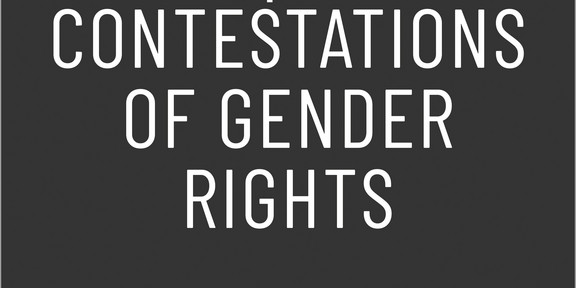New Publication: »Global Contestations of Gender Rights«

The interdisciplinary Research Group Global Contestations of Women's and Gender Rights of the Center for Interdisciplinary Research (ZiF) at Bielefeld University is pleased to announce the publication of their edited volume Global Contestations of Gender Rights, edited by the convenors Alexandra Scheele, Julia Roth, and Heidemarie Winkel (all of Bielefeld University). The book is available via open access from Bielefeld University Press here.
Across the globe, a growing number of social movements, such as demonstrations in support of equal civil status or reproductive freedom and against sexualized violence, show that women's and gender rights are highly contested. Against the backdrop of a long history of unequal rights implementation, the contributors to this volume deal with the questions of why and in which ways gender equality has become contested in various political contexts. Local case studies examine the relevant structural, institutional, and socio-cultural causes of the global challenges to equality. This book follows an interdisciplinary approach and unites scholars from law, linguistics, cultural studies, history, social sciences, and gender studies in diverse contexts.
Holly Patch co-authors a contribution on "Liberalism and the Construction of Gender (Non-)Normative Bodies and Queer Identities" with Ligia Fabris and Karsten Schubert. This contribution aims to analyze the predominance of an understanding of gender identity as deeply felt, given, and natural in Western liberal conceptions of rights. The authors claim that the liberal form of subjective rights fosters specific trans politics and limits the options for others. To interrogate these limits and possibilities, they first introduce the interpretation of human rights as naturalizing, then present the genealogy of the medical and legal construction of the naturalness of trans, and finally look at the trans political engagement and world-making enacted by a trans chorus in the US. Their aim is to think about the ambivalences and implications of these processes, as well as how it is possible that even within the liberal framework, non-normative bodies and queer identities can be acknowledged and supported through law.


![[Translate to English:] [Translate to English:]](/storages/ge-sowi/_processed_/9/7/csm_GE_Icons_pattern-01_c382a06826.jpg)